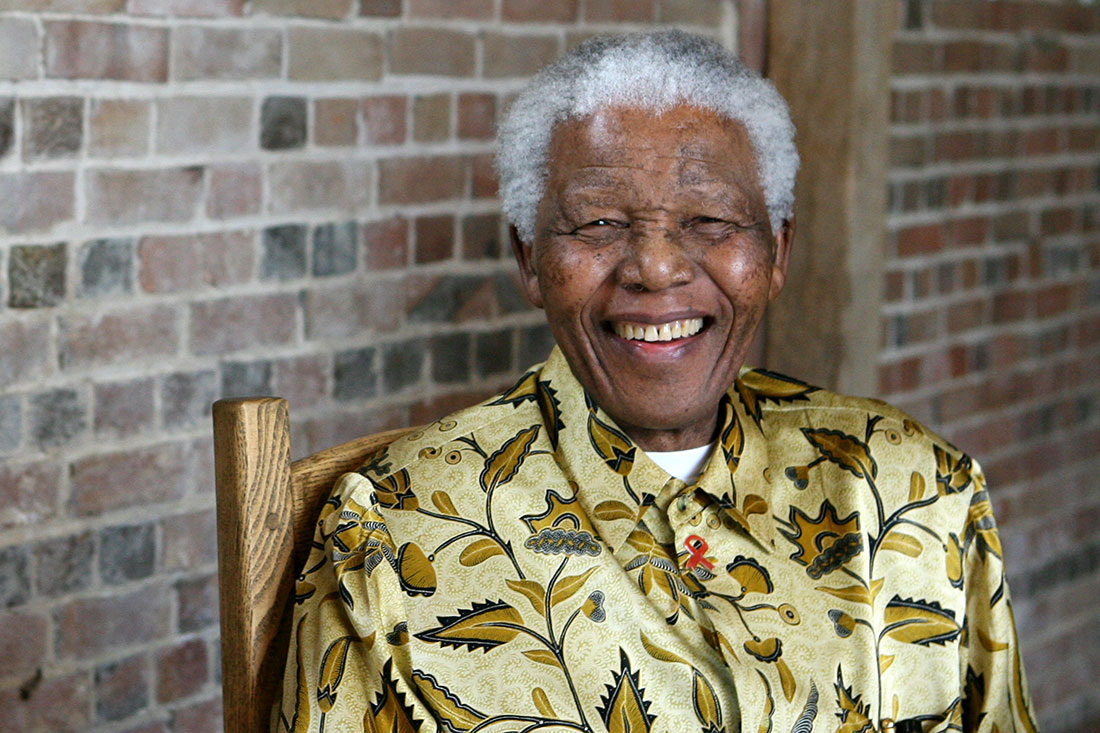History guides us, leading us in the footsteps of our predecessors as we explore new worlds and ideas. And the same holds true of our most gifted motivational speakers. From Africa to Asia, Europe and the Americas, storytellers have guided humanity through spoken allegories and parables. Ancient Athenian figures such as Pericles and Socrates further honed and formalized the craft, and over time, modern public speaking has evolved alongside humanity.
At their best, history’s motivational speakers inspire us to this day with messages of hope, personal growth, humanitarian progress and social justice. So who are some of history’s top motivational speakers—those who shaped not only the art of public speaking, but the world?
Jesus Christ
Motivational sermons can influence both the audience and the very fabric of a society. And few motivational sermons are better known than Jesus’ Sermon on the Mount. This speech did more than gather an audience—it made an impact felt throughout history. It may be one of the most widely cited public addresses, fueling causes across the globe. Though little is known of Jesus’ speaking style, his messages influence philanthropists, activists and motivational speakers such as Trent Shelton, Priscilla Shirer and Tony Robbins to this day.
The Prophet Muhammad
Like Jesus Christ, the Prophet Muhammad was born of humble origins. As with the great speakers of ancient Greece, he did not rely on written text or even notes to deliver his message. But he did—by divine inspiration or human understanding—use both logic (logos) and empathy and emotion (pathos) in his speeches, crafting a message of peace that went beyond lessons and syllogisms. He painted broad landscapes with words, appealing to senses of sound, sight and smell. In this way, Muhammad took people out of their preconceptions and placed them in a unique moment where they could embrace new ideas. To this day, modern motivational speakers such as Alaa Murabit similarly create seemingly tangible landscapes with words to better engage audiences.
Susan B. Anthony
Social reformer and suffragette activist Susan B. Anthony learned how to engage and motivate people at a young age. It was then, at only 16, that she gathered petitions to support the abolitionist movement in the United States. This early experience in communicating with people one-on-one fueled her activism for women’s suffrage and temperance. It also honed her skills in engaging with people at a personal level, even when those audiences became quite large and sometimes hostile. That commitment to social justice led her to spearhead more localized labor and justice movements prior to becoming a national figure. Her commitment to logic as a rhetorical device served her reform movements well, allowing her to change billions of lives. And it all began with simple petition-gathering.
Martin Luther King, Jr.
Following Susan B. Anthony into the 20th Century, Martin Luther King is the first motivational speaker on this list to have video of his delivery style. Franklin Delano Roosevelt, Dwight David Eisenhower and John F. Kennedy—each unique in their delivery—were clearly influential, too. But King stands out. An outsider who was not seen as an equal among many, King faced a constant uphill battle. Yet the man who motivated tens of millions of people in this country continues to motivate oppressed peoples globally today. He interwove complex elements of logic based in faith and positive passion with implied aversion to evil, carefully metered in the way only a Southern minister quite can. His speaking style may be the most studied in the world, but engage with his writing, also, for even deeper insight.
Nelson Mandela
Some motivational speakers are great orators. But few speakers come to the table with a clear willingness to stand or die for what they believe in. Nelson Mandela lived both. Prior to a trial in 1964, he stated that his conviction for harmony and equal opportunity “is an ideal for which I am prepared to die.” That message spread across continents. And it spread across decades, too. Like King and others, he communicated that common struggles unite us all. While keeping one person or group “down” may seem advantageous for some in the short-term, it decreases overall harmony in the long-term. Any sense of negativity rarely entered his addresses, and a positive outlook enriched his speaking style. Like Mahatma Gandhi, he proved that his faith in humanity was of greater importance than anything.
Mr. Rogers
Transitioning from the likes of Muhammad, Christ, Mandela or King to Fred Rogers isn’t the hard part. The hard part is that I think it would embarrass him. Yet, he belongs here. His undeniable influence as a public speaker is truly beyond measure. Consider that you have likely spent more time listening to Mr. Rogers speak to you—seemingly directly to you—than anyone else here. Were you engaged? Did he change your perception? Do you think that change improved your life or made a better person of you? Are you kinder or in any way more “together” for that influence? Are you a better person because of him? That’s what a motivational speaker does. Mr. Rogers influenced generations of children with a message of empathy and emotional intelligence through a simple, warm example and a calm, clear, gentle style of expression.
Today’s top motivational speakers
Motivational speakers such as Bob Proctor, Jim Rohn and Dr. Deepak Chopra further paved the way in building personal and societal enrichment through public speaking. Less than a century later, the internet provides us, our teams and our organizations even greater access to thought leaders. And they have greater access to us, too, through virtual speaking engagements and online motivational classes.
Visit the Success Speakers Bureau to discover the top motivational speakers and inspirational game-changers of today.
Photo by Alessia Pierdomenico/Shutterstock
